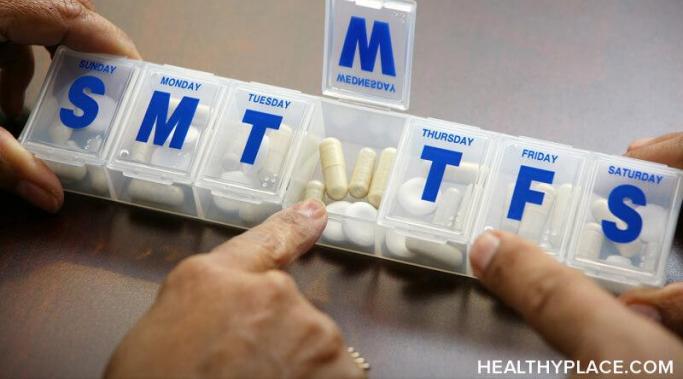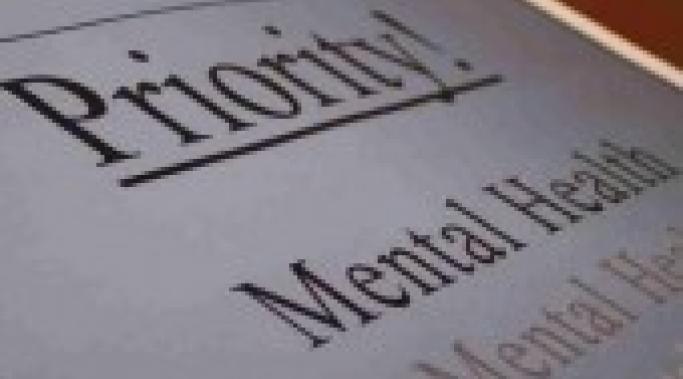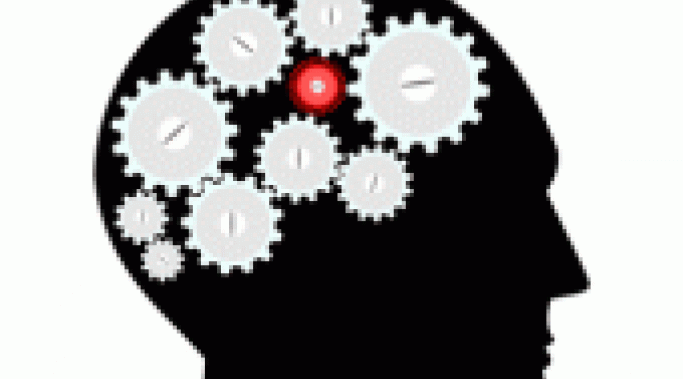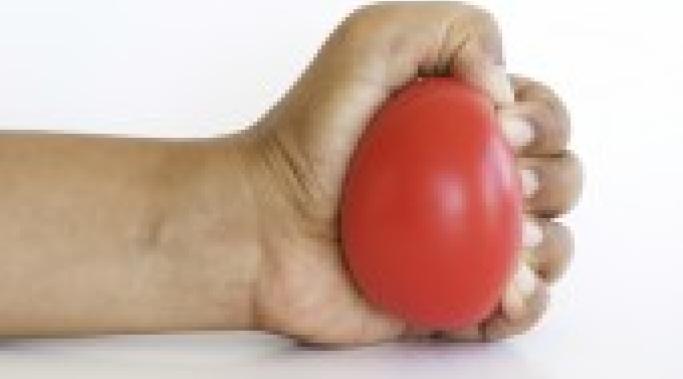Recently, my therapist suggested that I look into how to use emotional freedom technique (EFT) tapping in recovery to see if it was something I might be interested in trying. Now, it's one of my favorite coping techniques and I think it's going to make a big difference in my trauma work. If you haven't heard of EFT tapping, it involves tapping on specific points while speaking phrases of acceptance.
Managing Bipolar Disorder
The benefits of taking psychiatric medications include a reduction in troublesome mental health symptoms, but there's so much more to taking pills on a regular basis. When I was first prescribed psychiatric medication, I was definitely open to the idea, but I know that's not the case for everyone. Many people are skeptical, and the massive amount of stigma surrounding psychiatric medication certainly doesn't help. Here are five unexpected benefits of taking psychiatric medications I've experienced over a decade of taking pills every day.
When should the symptom-induced guilt and shame end and responsibility in mental illness begin? Chris T. (actual person, name changed) has been diagnosed with bipolar disorder. One of the ways his bipolar manifests is hypersexuality. This symptom drives Chris to act out sexually. He's a married man and over the years has had two extramarital relationships. He has come perilously close on more than one occasion to losing his entire family. Chris feels guilt and shame. He doesn't deny responsibility in his mental illness, but his wife is torn apart because of his actions.
Life doesn't halt simply because a mental illness exists, as much as I might wish the world would occasionally stop and let me off. How can you maximize the highs and offset the lows of bipolar disorder?
Mental Illness and relapse go hand in hand. Sort of like addiction and relapse. The statistics for both are rather dire: relapse, at some point in our recovery, often occurs. Having said that, there are some damn lucky folks who become stabilized and never become unstable again. I hope they recognize how lucky--how blessed--they are.
But in this post we are not talking about those who live a life of sustained recovery. We are focusing on those of us who falter from time to time--falter and pick ourselves back up. The majority of us.
My last blog focused on the importance of not diagnosing your mental health symptoms yourself! This blog will focus on not treating symptoms of relapse without consulting with your mental health care team first. Yes, I know, this post might seem a little boring but it's important so please keep reading--note: you can leave me a comment stating you fell asleep around 300 words. I will refrain from being offended.
When you live with a chronic mental illness you may experience periods of relapse. Side-note: Not everyone who lives with a mental illness relapses but for those of us who do, the desire to diagnose ourselves and, in connection, attempt to treat our symptoms is tempting.
And it is exceptionally dangerous.
When I think of mental illness--my journey sprinting through life alongside it-- I think of the image below. The famous Two Masks. I painted a picture of it, framed it, and gave it to my mother a couple of years ago. The irony was not lost on her. It hangs in the hallway; laughing at me. The masks represent bipolar disorder to me. They represent emotion on a whole--the entire spectrum. Like many people living with chronic mental illness, it's hard to find the parts that define the middle; the sort of happy bits that made us smile but were fleeting.
I think I talk about stress and the impact it can have on our mental health often in this blog. Hopefully, it's not exceedingly boring. This blog is a bit different in topic. Yes, it focuses of taking care of ourselves during periods of stress, but also on how we can take care of those we love if they become ill---while knowing when to pull back.
Oh...This is hard. I don't think I have ever slept this much in a very long time. I can sleep 20 hours a day. I can drag my ass out of bed to complete important articles, walk the dog and feed the cats and...fall back into bed. And by accident! I just cannot stay awake. My bed and I have become best friends. The books on my night-table keep me company and I try to eat. My life, pretty good just a month ago, has bloody well crumbled and I cannot even find the pieces to put it back together.









